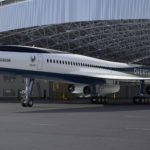Rolls Royce has said it is entering a ‘ground-breaking and ambitious’ hydrogen test programme in partnership with EasyJet.
H2ZERO will pioneer the development of hydrogen combustion engine technology capable of powering a range of aircraft, including those in the narrow-body market segment.
Both companies have committed to working together on a series of engine tests on the ground, starting later this year and have a shared ambition to take the technology into the air. The objective of the partnership is to demonstrate that hydrogen has the potential to power a range of aircraft from the mid-2030s onwards.
While Rolls-Royce will bring its expertise in engine development and combustion systems, easyJet will contribute its operational knowledge and experience to H2ZERO and will also directly invest in the test programme.
“This is quite an extraordinary project we are doing together, where we are connecting people and cultures in a way where we make a difference impacting on the environment,” said Johan Lundgren, CEO of EasyJet.
“Not only is the technology working but it’s working on and EasyJet aircraft.”
H2ZERO is inspired by the global, UN-backed Race to Zero campaign that both companies have signed up to, committing to achieve net-zero carbon emissions by 2050.
The agreement, announced today, follows a research project that both companies began in 2021, developing market analysis, driving specifications, investigating infrastructure and regulatory requirements to support the use of hydrogen in aviation.
Demand
Grazia Vittadini, chief technology and strategy officer, Rolls-Royce, said: “H2ZERO is a big step forward for Rolls-Royce and we are excited to be working with a partner that shares a desire to innovate and find new answers to aviation’s biggest challenges. We at Rolls-Royce want to be ready to pioneer sustainability with whatever the future requires, be it hydrogen, electric power, sustainable aviation fuel, or gas turbine efficiency. This agreement further inspires us to move forward.”
Vittadini added that the demand for h2 Green Hydrogen is high.
“No there is no broader debate of what the cost of transition in aviation to achieve net zero is,” she said. “We know there is SAF, carbon removal technologies, but hydrogen will be used by many different industries, such as the steel industry, shipping, you name it, it will simulate uptake and economies on a huge scale.”
Lundgren, who said EasyJet is ‘spending multi millions of pounds on the project’ added: In order to achieve net zero by 2050, we have always said that radical action is needed to address aviation’s climate impact. The technology that emerges from this programme has the potential to power easyJet-size aircraft. In order to achieve decarbonisation at scale, progress on the development of zero emission technology for narrow-body aircraft is crucial. Together with Rolls-Royce we look forward to leading the industry to tackle this challenge head-on.”
Subscribe to the FINN weekly newsletter

